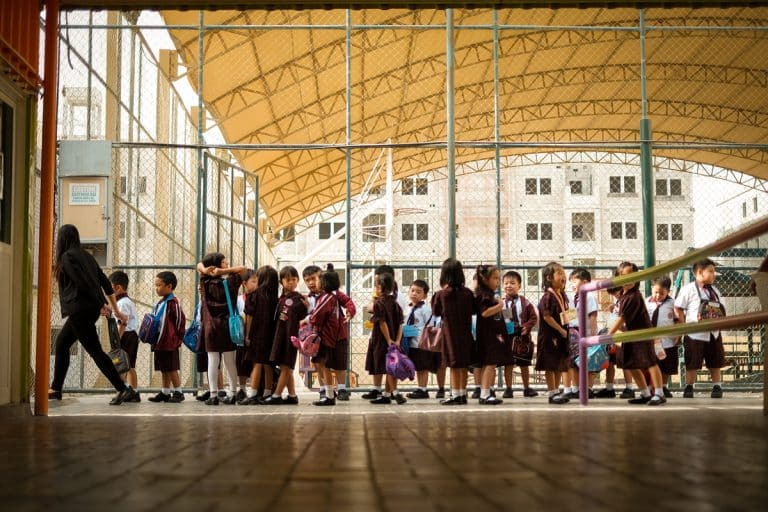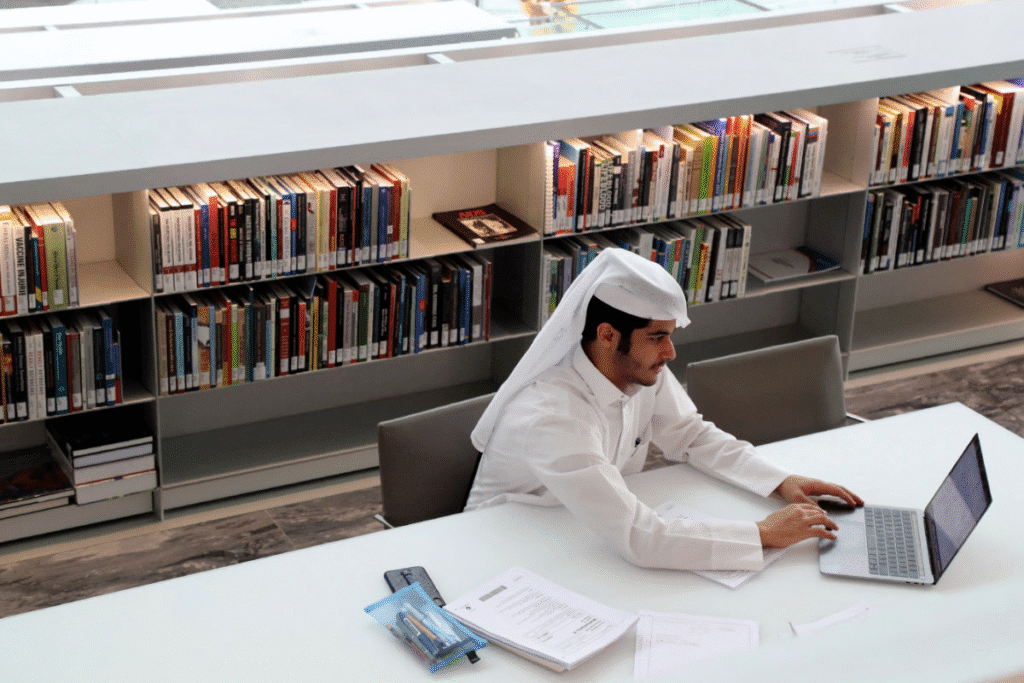The UAE Digital Arabic Library and Mandatory Arabic Education initiative is a significant step in preserving the nation’s cultural heritage and strengthening the Arabic language. The government has launched a comprehensive digital library and mandated Arabic instruction in early childhood education. These initiatives aim to ensure that future generations grow up proficient in Arabic while embracing the benefits of bilingualism in a globalized world.
The Digital Arabic Library: A Modern Initiative
Vision and Purpose
The digital Arabic library is part of the UAE’s broader strategy to modernize the Arabic language and make it more accessible. The initiative seeks to provide an extensive digital platform for Arabic literature, education, and cultural resources, ensuring that the language remains relevant in the digital era.
Key Features
- Comprehensive Collection: The library hosts a wide variety of Arabic texts, including classical literature, modern works, educational materials, and children’s books.
- User-Friendly Interface: Designed for accessibility, the platform allows users of all ages and technical skill levels to navigate and find resources easily.
- Multimedia Integration: The platform includes audio, video, and interactive content to enhance the learning experience.
- AI-Powered Learning Tools: Artificial intelligence assists learners in language comprehension, pronunciation, and vocabulary building.
Impact on Language Preservation
By digitizing a vast array of Arabic literature, the UAE ensures the preservation of its linguistic heritage for generations to come. The digital library serves as a valuable resource for students, educators, and researchers, providing an easily accessible repository of Arabic language materials.

Making Arabic Mandatory in Early Education

Policy Overview
Starting from the 2025 academic year, the Knowledge and Human Development Authority (KHDA) in Dubai has mandated Arabic instruction in early childhood education. This policy applies to all private schools and early learning centers, ensuring that children aged 4 to 6 receive daily Arabic lessons.
Implementation Phases
The mandatory Arabic policy is being implemented in three phases:

- Phase One: Arabic instruction for children aged 4 to 6.
- Phase Two: Expansion to include children aged 3 to 4.
- Phase Three: Introduction of Arabic language education for toddlers up to 3 years old.
A two-year evaluation will assess the effectiveness of the first phase before extending the program to younger children.
Curriculum Guidelines
The curriculum requires schools to provide a minimum of 200 minutes of Arabic instruction per week initially, increasing to 300 minutes per week by the 2027/2028 academic year. Lessons are delivered by qualified teachers using approved resources and age-appropriate methods, ensuring an effective and engaging learning experience for all children.
Dual-Track Approach
To accommodate both native and non-native Arabic speakers, the program adopts a dual-track system:
- Track One: For native Arabic speakers, designed to enhance their existing language proficiency.
- Track Two: For non-native speakers, focused on developing foundational language skills.
This approach ensures inclusivity while fostering bilingualism and cultural awareness among young learners.
National Strategy for Arabic Language Education
E33 Strategy
The E33 strategy is a comprehensive plan to strengthen Arabic language acquisition from early childhood through adulthood. It emphasizes the role of the mother tongue in cognitive development, cultural identity, and academic success. The strategy promotes the use of Arabic across education, media, and technology, reflecting the UAE’s commitment to maintaining its linguistic heritage.
Integration with Other Subjects
Alongside Arabic instruction, early education curriculums also include subjects like Islamic studies and social studies. This holistic approach ensures children receive a well-rounded education while reinforcing cultural knowledge and values.
Technological Advancements in Arabic Education

AI-Powered Learning Tools
The UAE is integrating artificial intelligence into Arabic language education to personalize learning experiences. AI tools adjust lessons based on each child’s proficiency and pace, offering interactive exercises, pronunciation support, and real-time feedback.
Collaboration with International Partners
The UAE collaborates with international organizations and publishers to enhance the quality and accessibility of Arabic learning resources. This includes producing materials for children with special needs, such as visually impaired learners, ensuring Arabic education is inclusive and comprehensive.
Community and Parental Involvement
Role of Parents
Parents are encouraged to support Arabic language learning at home through daily conversations, reading Arabic books, and engaging in cultural activities. This involvement reinforces classroom learning and helps children develop fluency and confidence in Arabic.
Community Programs
Community-based programs, workshops, and cultural festivals are organized to promote the use of Arabic in everyday life. These programs create environments where children are exposed to Arabic in various social and cultural contexts, encouraging active use of the language beyond the classroom.
Challenges and Considerations
Balancing Multilingualism
While promoting Arabic, the UAE also emphasizes the importance of multilingualism. Many children in the UAE grow up in international environments where English and other languages are prevalent. The challenge is to ensure Arabic education does not compromise proficiency in other languages, enabling children to thrive academically and socially.
Teacher Training
The effectiveness of mandatory Arabic instruction relies heavily on well-trained educators. Continuous professional development programs are necessary to equip teachers with modern pedagogical methods and strategies tailored to early childhood Arabic education.
Future Outlook
The UAE’s efforts to launch a digital Arabic library and make Arabic mandatory in early education are expected to leave a lasting impact. By combining technology, policy, and community engagement, the UAE is ensuring that Arabic remains vibrant, relevant, and central to national identity. These initiatives serve as a model for other nations aiming to preserve and promote their native languages in the digital age.
Conclusion
The UAE Digital Arabic Library and Mandatory Arabic Education initiative represents a forward-thinking approach to cultural preservation and bilingual education. By investing in technology, teacher training, and inclusive curricula, the UAE is ensuring that Arabic language proficiency is nurtured from an early age. These steps will help future generations embrace their heritage while developing essential skills for a globalized world.
Do follow UAE Stories on Instagram
Read Next – Dubai Court Overturns Filipina’s 10-Year Drug Sentence















